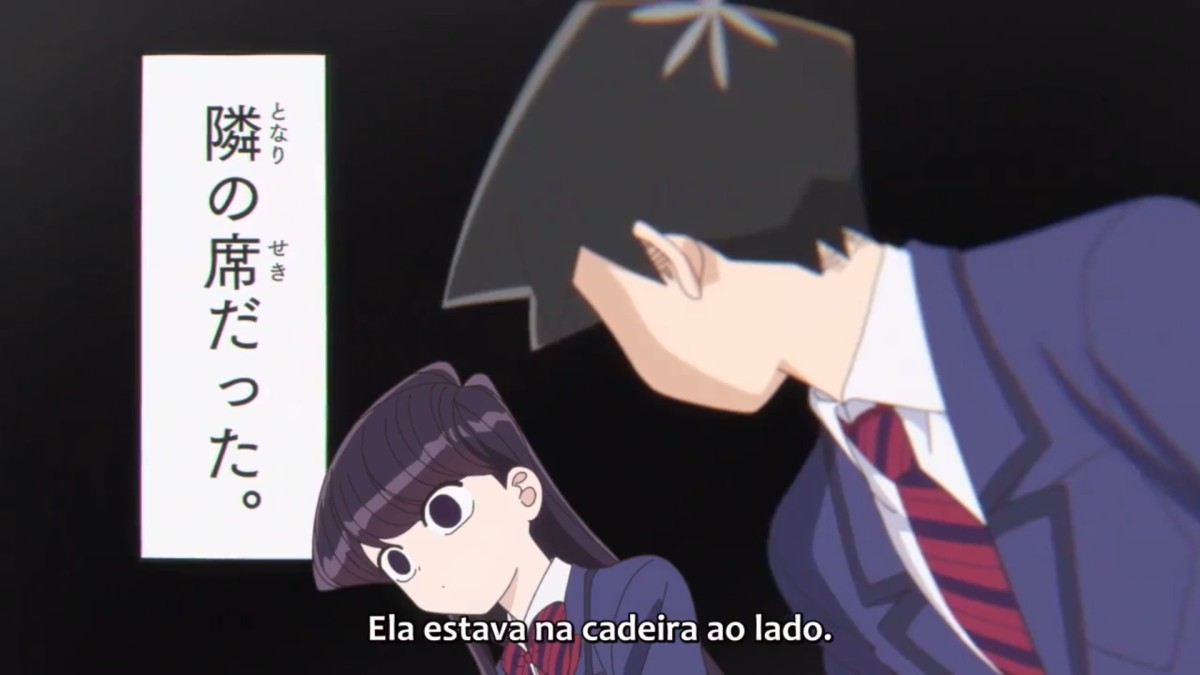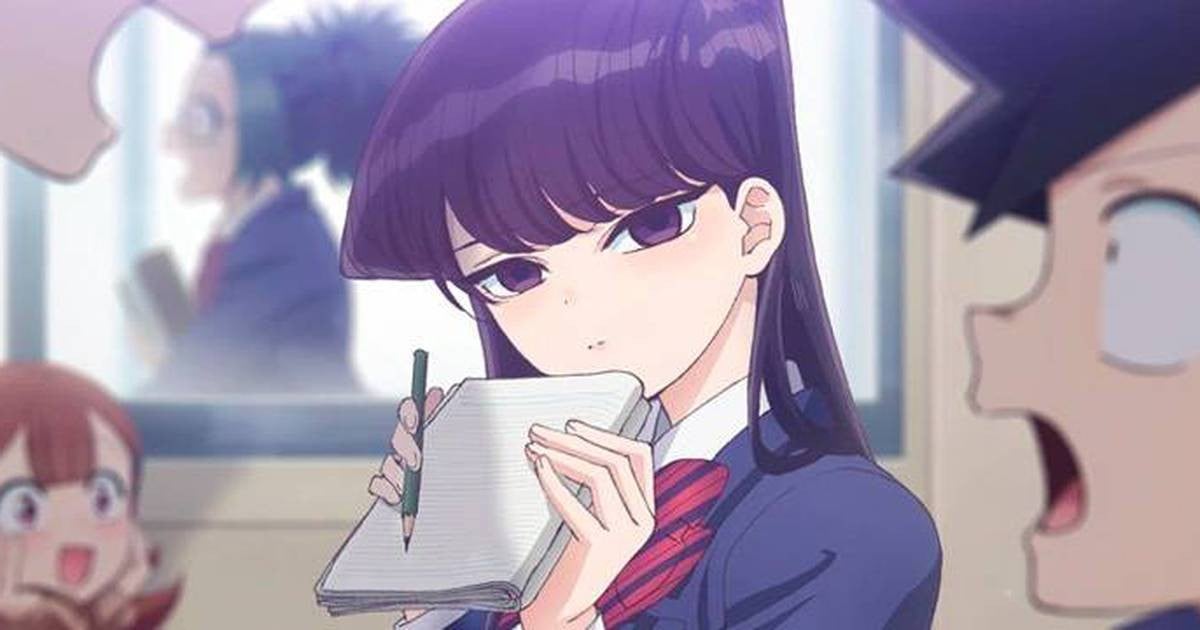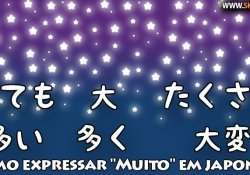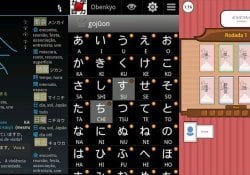Komi-san wa, Komyushou desu is a manga written by Tomohito Oda that won a TV adaptation in 2021. In this anime we face a disease that may seem ridiculous to some, but it's real, a disorder called Komyushou.
In this article we are going to talk a little about the anime Komi-san, a little about the Communication Disorder and also tips for learning Japanese using this anime full of phrase balloons.
Índice de Conteúdo
About the Anime Komi-san wa, Komyushou Desu
The English and Portuguese anime is translated as Komi-san cannot speak, but the original Japanese name carries the disorder, which can also mean the same thing.
In the anime, we follow the story of Tadano, a shy and ordinary young boy in a school full of crazy people, until one day he discovered that Komi-san has difficulty talking and making friends.
Despite Komi-san being super popular for her beauty and style, she can't speak any words and gets stuck in any communication situation. Throughout the anime we also meet other characters who have some complexes.
The anime has beautiful animation, great comedy scenes and some very interesting memes. Unfortunately the anime didn't have the success it deserves in Japan, but it's booming in the west.

What does Komyushou mean?
Komyushou [コミュ症] is the miscellaneous name for the communication disorder known as Komyunikēshon shōgai [コミュニケーション障害]. It is a word commonly used for people who are not good at communicating with other people.
It does not refer to people who have difficulty speaking, but to a social phobia in which the person has perfect communication alone or with family members, but has extreme difficulty talking to strangers.
It may seem like an uncommon disease in the West, but in Japan there are constant reports of people having it. difficulty talking and they need to resort to electronic means to express themselves. Others are unable to converse even for certain electronic text media.
This disease is known clinically, we warn you not to be confused with Communication Disorder where the only change in the word is in the last ideogram [コミュ障].
Despite the same spelling and pronunciation, the second refers more to a communicative deficiency or momentary difficulty, while the focus word of this article refers to a complex and social disturbance.

Studying Komi-san's Phrases
For more advanced classes we recommend accessing 土下座 - Dogeza
隣の席だた
- 隣 - Beside; From the side;
- 席 - Wallet; Sitting on the wallet;

お弁当が食べられなかったんです。
- お弁当 - Lunchbox; Snack;
- 食べられなかったんです -

本当は喋りたいんです。
- 本当 - Truly; Certainly;
- 喋りたい - Want to Talk;

私、人前に出ると緊張で表情が固まってしまって、その怖いとおもうんですけど
- I - I
- 人 - Person;
- 前 - Front;
- 出る - Exit;
- 緊張 - Nervous;
- 表情- Facial expression;
- 固まってしまって - Harden;
- 怖い - Scary; Fear;
- 思うん - To think, to find;
When I go out in public, my expression hardens with tension, and I find it frightening.

でも私が近づくと 相手にも緊張されたり失神したりってしまって
土下座されたこともあります。
- でも - But; Although;
- 近づく - Approach;
- 相手 - Adversary;
- 緊張 - Nervous;
- 失神 - Fainting
- 土下座 - Dogeza;
But when I approached, the other part was nervous and passed out. I was kneeling on my knees.

辛かったんです。 お弁当の時間が 一人でご飯を食べるのが
- 辛かったんです - It was difficult;
- 時間 - Time;
- 一人 - One Person; Alone;
- ご飯 - Lunch;
It was hard, it was difficult, all this time eating lunchboxes alone;

声をかけることが 出来なかったんです。
- 声 - Voice;
- かける - To throw out;
- 出来る - Achieve;
I wish I could get my voice out;

一緒に食べよって言いたかったんです。
- 一緒 - Together;
- 言い - Talk; To say;
I wish I had said: Let's eat together!

他の人はみんな出来るのに、私には出来ません
- 他の人 - Other People;
- みんな - All;
- 出来る - Achieve;
- Everyone else did it, but I couldn't!

とにかく、謝らなければいけないと思ったんです
- とにかく - Anyway; anyway;
- 謝らな - Sorry;
Anyway, I thought I had to apologize.
今日はいい天気でよかったですね。

- Today
- Bom;
- 天気 - Time;
Good thing the weather is nice today, right?
古見さんの夢は?

What's your dream Komi-san?

友達100人作ることです。
- 作る - Do;
- 友達 - Friend;
Make 100 friends;
じゃあ僕が1人目の友達になるし、あと99人の友達作りも手伝うよ。

- じゃあ - So;
- 僕 - Me;
- 一人目 - First;
- 手伝う - Help;
Then I'll be your first friend and help you make 99 more friends.

よろしくお願いします。
I count on your help!





